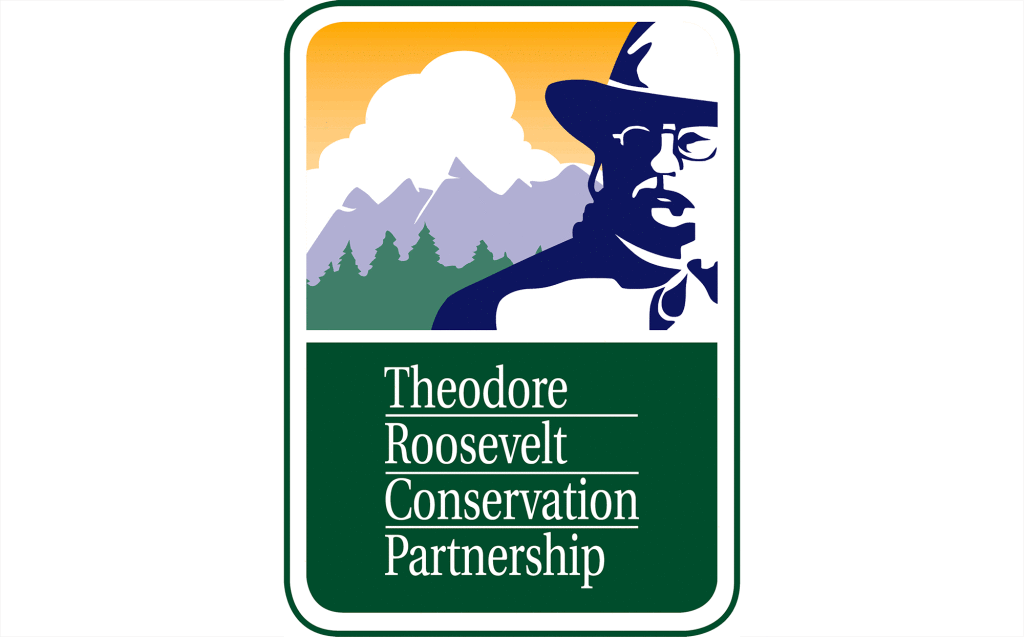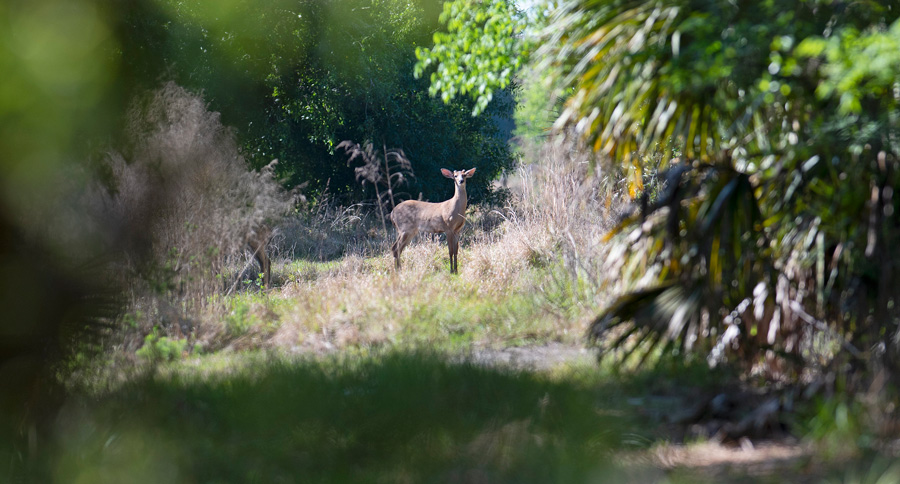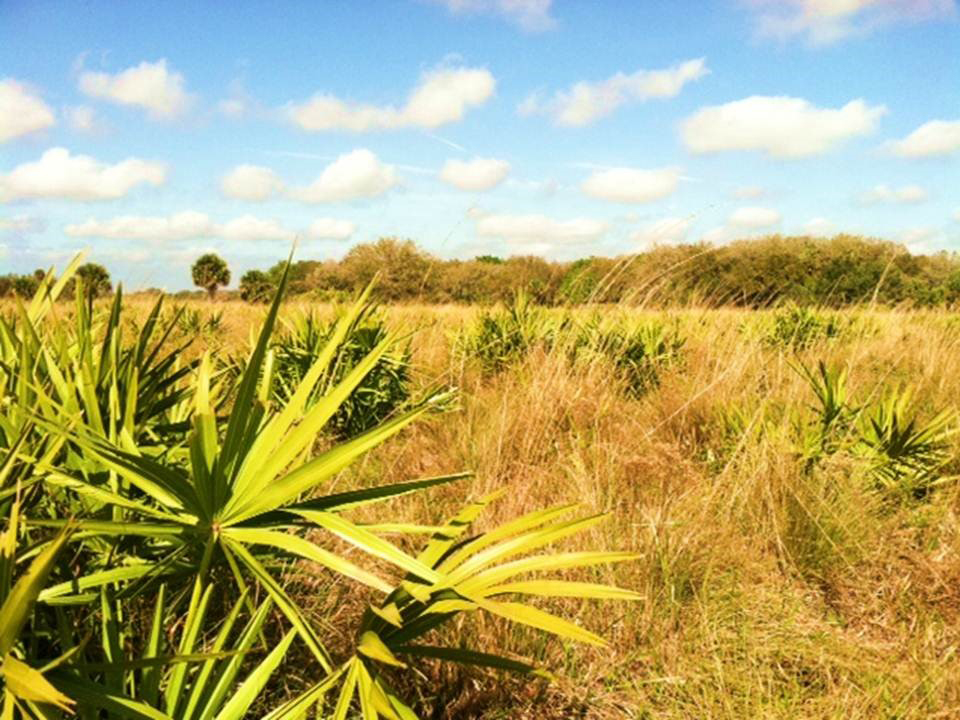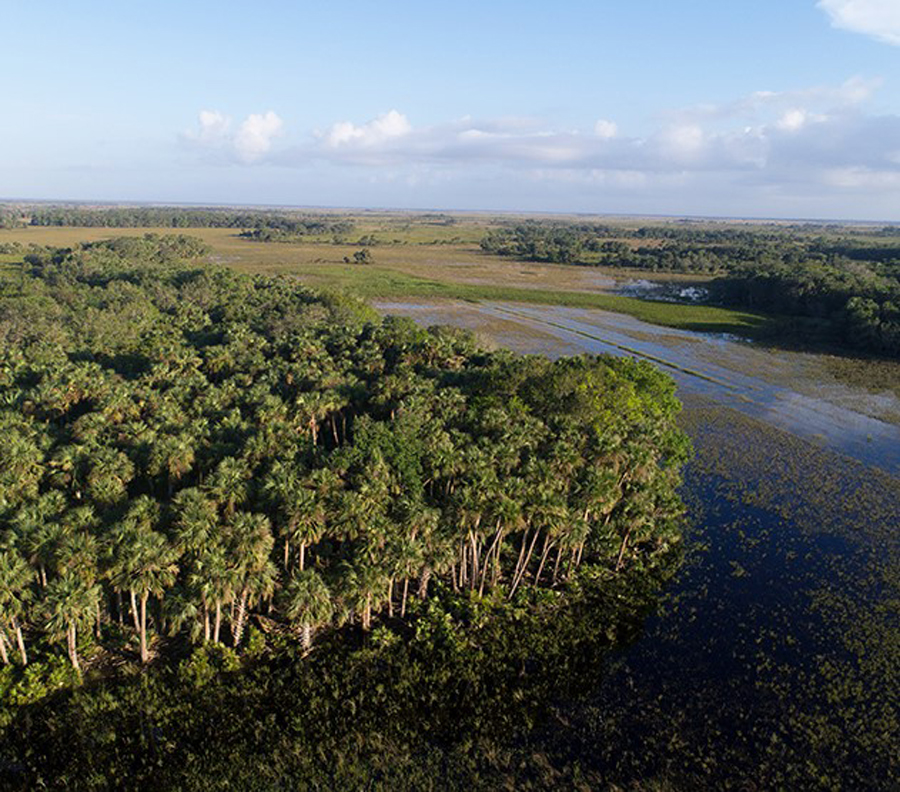Project to Restore Everglades Headwaters Habitat Also Opens Access


Unique conservation partnerships have helped to restore habitat and provide new public hunting and fishing access on nearly 4,000 acres in south-central Florida
Sportsmen and women love a great access success story, but when newly opened hunting and fishing lands also provide a win-win for habitat conservation, that should be breaking news across everyone’s social feeds.
This is one of those stories. It has the grit and tenacity of passionate volunteers and tireless collaborators. And their years of effort are already making a big difference for fish and wildlife in the Everglades, where water mismanagement has created a conservation and infrastructure crisis.
Here’s what you need to know about a project that will establish the first state Wildlife Management Area in Okeechobee County and provide hunting opportunities and recreational access on almost 4,000 acres of formerly private land.

The Triple Diamond Ranch Project
In 2012, the U.S. Fish and Wildlife Service established the Everglades Headwaters Conservation Partnership Area, a relatively new model of land conservation where the objective was to conserve 150,000 acres of fish and wildlife habitat in the headwaters of the Everglades ecosystem.
Conservation in an area of this size could never be accomplished by one organization alone. Just look at the scope of the project: The partnership area extends from just north of Lake Okeechobee to the outskirts of Kissimmee just outside Orlando. This kind of conservation requires partnerships on a scale that is rarely encountered, but a unique coalition can already count one big win in the partnership area.
We’re talking about acquisition and restoration of the Triple Diamond Ranch, which lies adjacent to the Kissimmee Prairie Preserve State Park and east of the Kissimmee River. This well-managed private ranch supports wet and dry prairie, which is otherwise globally imperiled. In addition to protecting this rare habitat, planned conservation work on the ranch will provide hydrological benefits as water flows south through the Everglades, restoring wetlands that can hold water and naturally filter out nutrients as flows are gradually released.

The ecological benefits of this project are clear. However, just as significant was the formation of unique alliances, which have paved the way for the property to be purchased, managed well, and eventually opened to the public for outdoor recreation. No single governmental entity was able to purchase the property on its own, so this had to be a team effort. Two nonprofit organizations, the Open Space Institute and the Wyss Foundation, made the initial purchase of the property, and it is now owned and managed collaboratively between the Florida Department of Environmental Protection and the U.S. Fish and Wildlife Service.
In the end, almost 4,000 acres are now in permanent conservation status, with major assists from TRCP partners like the National Wildlife Refuge Association and Ducks Unlimited, as well as local advocates at Audubon of Florida, the Florida Fish and Wildlife Conservation Commission, the Florida Division of State Lands, and the Florida Department of Agriculture and Consumer Services.
And collaboration continues—these lands will be co-managed by the Florida Forest Service and the Florida Fish and Wildlife Conservation Commission in coordination with the U.S. Fish and Wildlife Service. Eventually, the property will be managed as the first state Wildlife Management Area in Okeechobee County, providing hunting opportunities and recreational access on almost 4,000 acres of formerly private land.
This is not just a win for fish and wildlife habitat, sportsmen’s access, and clean water. It’s a model for using conservation partnerships to make measurable progress on Everglades restoration. After all, we’re better together.
Jon Andrew is the Florida outreach coordinator for the Theodore Roosevelt Conservation Partnership. He is recently retired from a 35-year career as a biologist and refuge manager with the U.S Fish and Wildlife Service, where he eventually became responsible for management of all refuge lands in the southeastern U.S. and Caribbean. In his spare time, he enjoys saltwater flyfishing and poling his skiff in the shallow waters along the southwest Florida coast in search of snook.
Top photo by Andy Wraithmell/Florida Fish and Wildlife Conservation Commission
SHARE ON
You may also like
The role corn plays for gamebirds and economies ac...
Sportsmen’s conservation policy issues from publ...
Sportsmen’s conservation policy issues from publ...


























